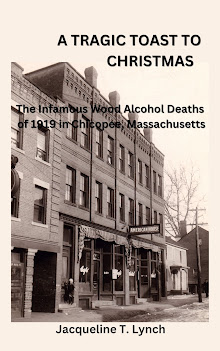
According to the “Byrne’s Dramatic Times” of Saturday, December 27, 1884, the theatre world in New England, and maybe in general, was hitting a rough patch. New Englanders had always been known among traveling players as being a region where people sat on their hands. On this date 123 years ago, it was lamented that the people weren’t even showing up.
“The Dramatic Times” was kind of like the “Variety” of its day. It gives us an interesting picture of what was happening on the boards, when the theatre world and its performers were considered exotic, and sometimes of questionable virtue. In New Haven, Broadway’s perennial anteroom, “Three Wives to One Husband,” which the Dramatic Times labeled an “extravagantly absurd comedy” played to “wretchedly small houses.”
Up in Bangor, Maine, “Prof. Mohr in legerdemain” played “to poor business” on the 12th and 13th. Over in Fall River, Mass., Callender’s New Minstrels played to a poor house.
Perhaps it was the material. In Boston, “Desiree” was performed at the Bijou, where “some extremely pretty and fascinating music is saddled to the worst rot imaginable, and the affect on the audience is to send them out in disgust or put them to sleep.” In the cast of this comic opera, we note of the popular 19th century actor and comedian DeWolf Hopper, “To Mr. De Wolf Hopper, the greatest praise is to be given, for in spite of his exaggerations, he is a true comic artist, and made all the success. Miss Rose Leighton, on the other hand, was the worst. What possible excuse she had for appearing is beyond me.”
Then again, maybe it was the critics who made theatre of the day so dismal.
Playwright, actor Dion Boucicault was in town with his “The Shaugraun” which would be followed by his “Colleen Bawn.” This is an interesting hint to us that the well-received Irish melodramas of this Neil Simon of the 19th Century indicates that in the twenty or so years since the Civil War, the Irish in New England had reached middle class status. Mr. Boucicault did a good business.
It is noted that after the performance of Boucicault’s play at the Museum, “Pique will follow.” One assumes this refers to the card game, and not the critic’s disdain.
Friday, December 28, 2007
Theatre in New England, December 1884
Posted by
Jacqueline T. Lynch
at
7:35 AM
![]()
Labels: 19th century, entertainment, New England
Subscribe to:
Post Comments (Atom)









No comments:
Post a Comment